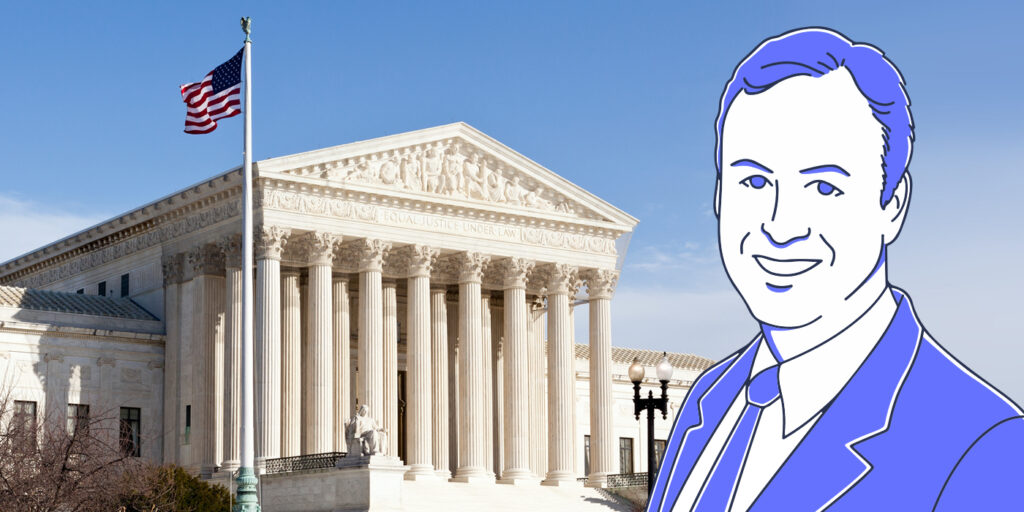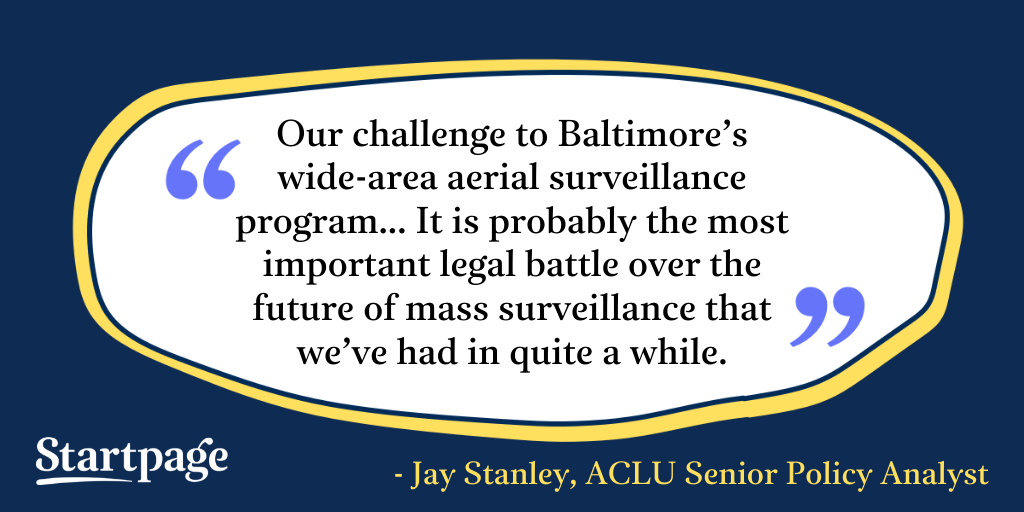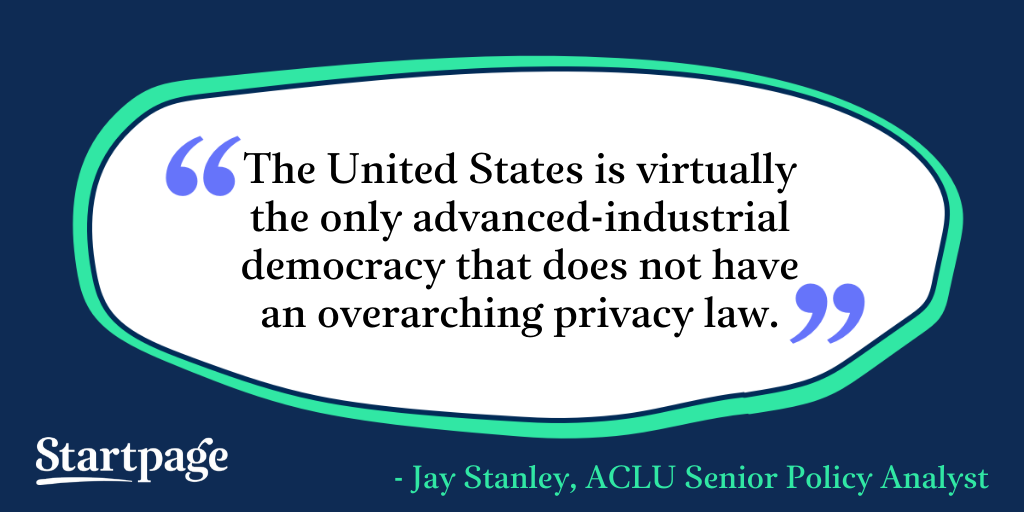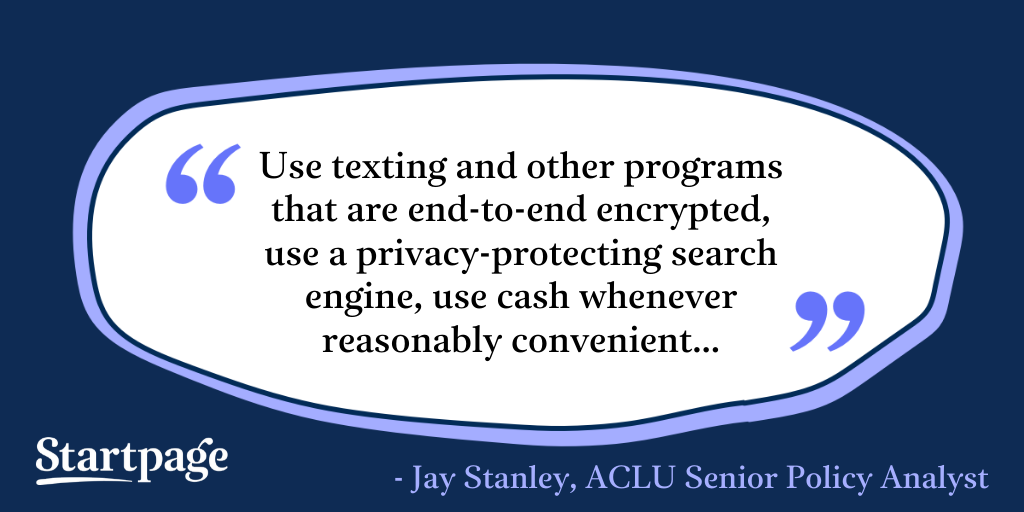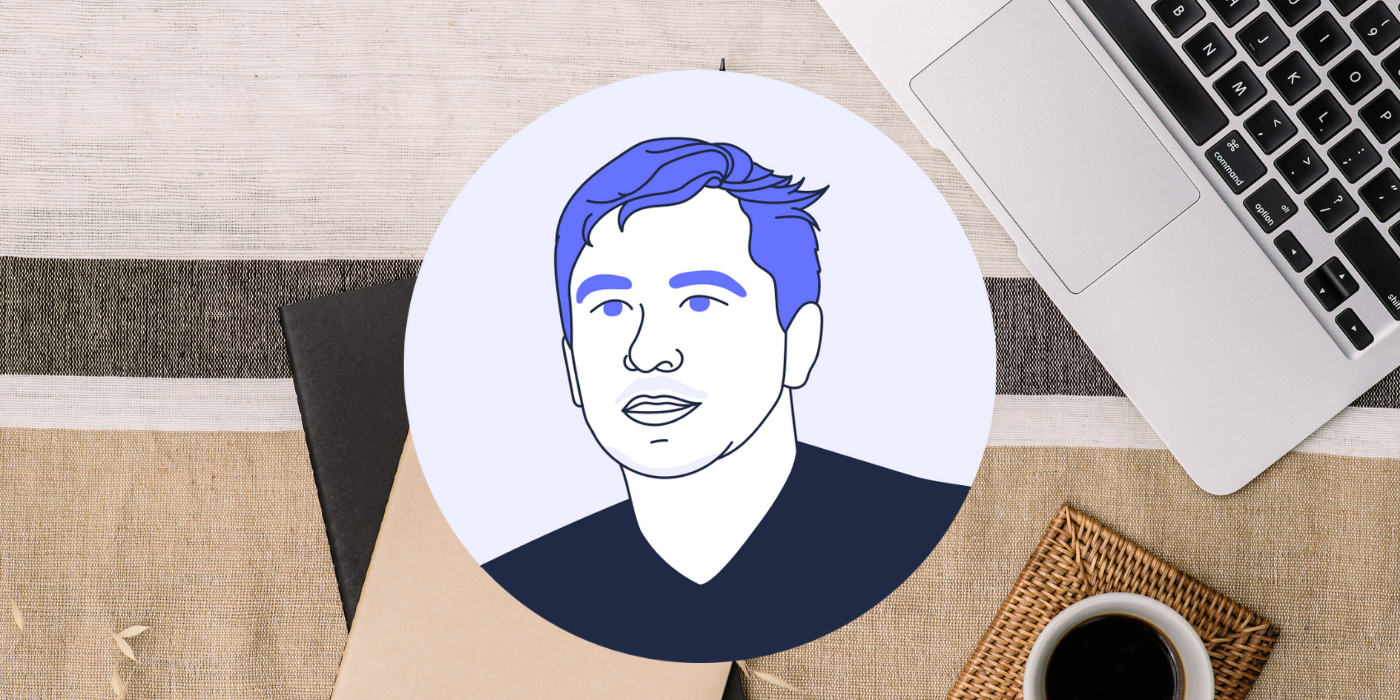Privacy In Action: Jay Stanley, ACLU Senior Policy Analyst
Privacy in Action is a series of interviews with privacy-minded Startpage users from diverse backgrounds. The goal of the series is to explore different perspectives on privacy, how privacy takes action in their lives, and provide recommendations for people with similar backgrounds.
Jay Stanley is Senior Policy Analyst with the American Civil Liberties Union’s Speech, Privacy and Technology Project, where he researches, writes, and speaks about technology-related privacy and civil liberties issues and their future. Stanley has written numerous ACLU reports and white papers as well as hundreds of blog posts on privacy and other technology policy issues.
Before joining the ACLU in 2001, Stanley was an analyst at Forrester Research, where he focused on Internet and public policy. Stanley is a graduate of Williams College and holds an M.A. in American History from the University of Virginia.
Interview with Jay Stanley:
Startpage: How does the ACLU tackle privacy issues?
Jay: We deploy all the tools at our disposal to defend Americans’ privacy. That can include litigation, lobbying, public education and advocacy, media work, participation in technology standards-bodies, and organizing. Different tools and approaches are more effective in different areas, so we’re always looking to see how we can have the biggest impact.
Startpage: What are you currently working on right now?
Jay: I’ve been working closely with colleagues on the various ways that Covid-19 intersects with technology & privacy issues. That includes location and contact tracing, the use of temperature screening, and drones.
Startpage: Are there any privacy-related cases people should be looking out for?
Jay: A case with huge implications is our challenge to Baltimore’s wide-area aerial surveillance program. This isn’t directly related to COVID-19 (though such a surveillance system could be justified/used for social distancing or quarantine enforcement among many other things), but it is probably the most important legal battle over the future of mass surveillance that we’ve had in quite a while.
Startpage: What Supreme Court rulings stand out as landmark cases that protect an individual’s right to privacy?
Jay: In recent years, the court has really begun to grapple with the implications of new technology for our privacy. Those cases include U.S. v. Jones, which found that prolonged GPS tracking constitutes a search under the Fourth Amendment even if a car is in public the whole time; Riley v. California in which the court found that “digital is different” — i.e. that the scale of digital collection of information changes the calculus when it comes to longstanding privacy rules — and Carpenter v. U.S., an ACLU case, which found that the police need a warrant to obtain historical cell-site location data from the telecoms.
Startpage: In order to best protect privacy rights, what legislation is needed in the US?
We need overarching privacy legislation that puts in place some robust, commonsense protections and creates stability of expectations for consumers and businesses. We will also continue to need technology-specific legislation in some areas — around face recognition, for example.
Startpage: Do you look toward outside the US to see what other governments are doing in regards to privacy? Are there any governments that are doing a better job of protecting its citizens’ right to privacy?
Jay: While we are U.S.-focused, we do keep an eye on what’s happening in other countries, both good and bad. While there are many terrible practices — in authoritarian countries, for example — the United States is virtually the only advanced-industrial democracy that does not have an overarching privacy law.
Startpage: In regards to the COVID-19 Tracking Apps, what is the consensus you’ve heard from public health experts? Would a location tracking app be effective?
Jay: I’m definitely hearing skepticism from some public health experts that the whole discussion around automated or technology-assisted contact tracing will prove practical and is anything more than a sideshow to the main conversations and the main needs that we have in combatting this outbreak. We also hear that privacy is not a luxury but a necessity if contact tracing is to be effective, because if people don’t trust it, they won’t cooperate well. And we hear from public health experts that voluntary measures are almost always better than coercive measures for the same reason.
Startpage: How can privacy centered companies help the ACLU and other organizations in strengthening privacy rights?
Jay: One of our missions — and one of our strategies in protecting privacy — is increasing public awareness of the risks that new technologies and practices pose to individuals’ privacy, and why they should care. That is an area where the interests of privacy-protecting companies and the interests of advocates align 100%. Spreading the word.
Startpage: One a scale of 1 to 10, how private are you? How private do you think the general public is?
Jay: Probably a 7 or 8. The general public is probably lower, just because a lot of people don’t really think about or know about a lot of ways that privacy can be invaded. But everyone needs some core of privacy. And privacy does not mean everybody has to be private; it means you have the option to be more private if you want to.
Startpage: How do you envision data privacy in the future?
Jay: Today’s privacy-invading online ecosystem lacks legitimacy and is not stable. There is always a lag between when people lose their privacy and when they realize and feel that they’ve lost it, but in the end people always figure it out, and they always demand privacy. We’ve already started to see the beginnings of a reaction against the “land rush” to exploit new technology to monetize privacy invasions before people realize what’s happening. In the medium to long term, there will be some ways that our privacy is irreducibly diminished — but there will also remain a core of privacy protections that will return and remain.
Startpage: For anyone new to policy, what would you recommend as the first steps to protecting their personal data?
Jay: Among the measures I would recommend: use texting and other programs that are end-to-end encrypted, use a privacy-protecting search engine, use cash whenever reasonably convenient, and be very wary of what software you put on your phone or other devices, what services you use, and what companies you patronize.
Further Reading:
ACLU Challenges Baltimore’s Aerial Surveillance Program
https://www.aclu.org/news/privacy-technology/aclu-lawsuit-over-baltimore-spy-planes-sets-up-historic-surveillance-battle/
US v Jones
https://www.aclu.org/cases/us-v-jones
Riley v California
https://www.aclu.org/cases/riley-v-california
Carpenter v US
https://www.aclu.org/cases/carpenter-v-united-states
—
We’d like to thank Jay for taking the time to answer these questions. If you are interested in participating in the Privacy in Action or would like to nominate someone to be interviewed by us, reach out to us at [email protected].
The views expressed in this Q&A are those of the interviewee and do not necessarily reflect those of Startpage.


